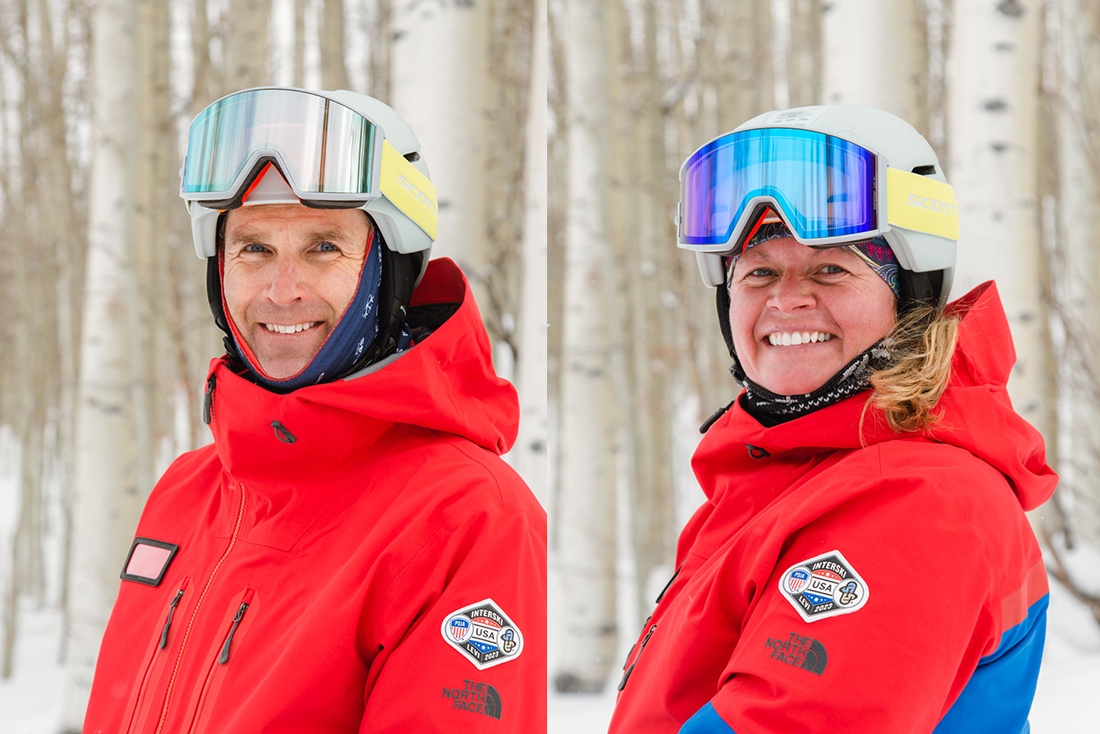Interski 2023: Top Takeaways from Germany’s Presentation
Held every four years, Interski brings instructors together from around the world. The event offers a valuable educational opportunity for snowsports educators to share their innovations and core beliefs. It gives PSIA-AASI, through its national team, an opportunity to compare the American Teaching System with educational approaches of other countries and bring home ideas that help PSIA-AASI members improve and evolve.
Here, PSIA Alpine Team members Stephen Helfenbein and Brenna Kelleher share their take on Germany’s presentation on the Quality of the Learning Experience.
Stephen Helfenbein
Germany is concerned with the quality of the learning experience – specifically, what it takes to create an ideal lesson.
There are three elements involved:
- First, the ideal lesson should elicit an emotional response via the skiing experience.
- Second, learning is an achievement, and a source of pride for the individual. It feels good to learn.
- Third, they describe with the word “Be” the aspect of forming connection with a community or group. Skiing is a great vehicle for this.
To achieve the ideal lesson, the Germans create a student-centered lesson and create a positive learning environment within the lesson with the instructor acting as an inspiration or role model. Germany seems to share our values and beliefs about student centered learning, and a lesson that leverages positive experiences.
The Germans also talked about increasing the range of options for success at the beginner level. The benefits of having a broad definition of success for beginners enhances students’ motivation and increases the chances they return for another visit to the ski slopes.
The PSIA-AASI beginner experience has always been a point of focus. There is ongoing concern about retention after a beginner lesson. By defining a broader definition for success, I think we could improve a beginner’s experience. For example, some beginner lessons may focus too heavily on advancing to more challenging terrain. Perhaps an example of a broader outcome would be to highlight the ease with which someone can glide, and the different types of gliding that they can do.
Brenna Kelleher
Germany’s ski-learn-be lesson model defines skiing as a holistic experience. Snowsports are fun away from a cozy space and home. It softens the hectic pace of the everyday life. Nature helps skiers transition away from everyday life into sport.
Three of the key takeaways in the German model are:
- Learn about the person by asking questions.
- Explain the ski technique.
- Have the group pay attention to each other and manage the group with the teacher playing an active role.
The presenters also discussed how to choose appropriate ski technical points, how to use effective exercises, and how to organize and structure the lesson. It was a student-centered experience that stressed preparation, evaluation, and reactions.
Some other takeaways include: Learning is always taking place, and instructors need to recognize and remembering that every day for a guest could be the best day on snow whether they are just beginning the sport or already engaged, so make it a good experience.







